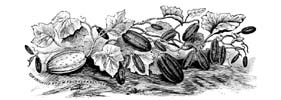
Restoring Our Seed (ROS) is a grass-roots network of farmers working together to create decentralized, community seed systems in New England. Season by season farmers are learning to select for superior flavor, early maturity, resistance to local pests and disease, and reliability in our cool climate.
To be involved in ROS breeding projects, please fill out and mail the enclosed postcard. We will send you the seed, selection guidelines, and news of farmer field days and events. We appreciate if participating farmers photograph and write about your field site, plants, observations and questions to share in our web-guidebook and at our next ROS conference. To share ideas or for information contact: CR Lawn and Eli Rogosa, 207 872 9093 humus1@netvision.net.il. Visit growseed.org for activities and resources.

With the support of Dr. Mark Hutton, Maine Cooperative Extension, ROS growers are developing a delicious, disease-resistant pickling cucumber. Last year we crossed a delicious pickle, Conquest, that is no longer commercially available with Clinton, a disease-resistant pickle. Rob Johnston provided the Conquest seed and Mark Henning of Cornell University supplied the Clinton seed, and conducted the first generation cross at Cornell. Seeds from the second generation are available to interested growers

We are continuing our improvement of Purden's Purple, an heirloom tomato, for resistance to altenaria (early blight). In the coming years we hope to increase the durable horizontal resistance of this variety to early blight.


Drawing from our work, ROS will produce a web-guidebook with photos and selection guidelines to help New England growers see the plant as an ecological breeder might, and to encourage folks in long-term crop improvement projects on their own farms.